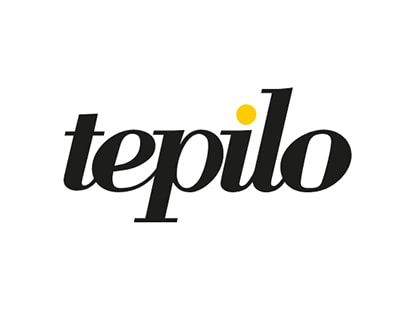The demise of Emoov, Tepilo and lettings platform Urban raises question marks over the long-term viability of online agencies according to some industry observers.
With Emoov and its associated brands now in administration it is possible that these names will rise again in some form, but 2018 has seen major casualties in the online sector - not through consolidation but through failure.
Hatched was closed by Connells in the summer, with the company saying the hybrid model “does not produce a viable economic result”, and Countrywide scrapped its catastrophically-unsuccessful online service in the early part of 2018 after a coup ousting chief executive Alison Platt.
Purplebricks, Doorsteps, HouseSimple, Yopa and some smaller online operators remain, but not all is rosy even with these; combined, they have struggled for market share of more than seven per cent at most.
Now estate agency analyst Andrew Stanton has told Estate Agent Today why in his opinion Emoov could not find a buyer and instead had to go into administration.
Stanton previously ran his own agency and worked at Sequence and Blackhorse agencies before setting up Estate Agency Insights and Strategies, which assists agencies grow their business. His analysis provides food for thought when assessing the long-term prospects of the remaining online and hybrid agencies.
“Why would buying Emoov and Tepilo be a strategic move? For anyone?” asks Stanton.
“All you are buying is a company with lots of vendors on their books, but the cash has already been extracted from them upfront - and has been lost in the company's losses. So you buy Tepilo and Emoov, and you inherit thousands of vendors, and then you have the liability to sell them as you are the new company, but there is no fee as it was paid upfront to the old company.
“If a large traditional agent like Countrywide failed, then inheriting the vendor base would have value as 50 per cent of the potential fee would turn into cashflow, 17 weeks after each of the vendors get a sale.
“But gaining thousands of vendors who need to be listed on Rightmove and Zoopla, and who will take up the time of the [Emoov staff] Local Property Experts for no financial gain - what value is there here?”
Stanton says Tepilo and Emoov amassed £24m of losses in the past two years and have disgruntled vendors and staff “so even obtaining them for a penny would not be a good Christmas present idea, unless you like turkey.”
The concept of a company going into administration will be understood by many agents, especially those who own their own businesses, but for those not certain about what happens next with Emoov, here is the definition from Real Business Rescue, a licensed insolvency practitioner.
“When a company enters administration all company control is passed to an appointed administrator (who must be a licensed insolvency practitioner). The administrator’s primary goal is to leverage the company’s assets and business to repay creditors as quickly and as fully as possible without preference. The administrator is given a period of eight weeks to send out formal administrative proposals to all of the insolvent company’s creditors. These proposals will typically contain a basic plan of action that the administrator will follow to repay debts, information about the current status of the company, and the administrator’s anticipated outcome.
“If the company has consistently predictable cash flow, a healthy amount of assets, and/or a good volume of sales transactions, then there is a possibility that the administrator will be able to raise enough money to pay a significant portion of the debt and/or come to a formal agreement with creditors without having to liquidate/dissolve the business. The administrator may decide to recommend a pre-pack administration sale, in which the assets and business of the old company are sold to a new company. This type of procedure is often referred to as a “pre pack”. However, before a pre-pack sale can be executed the administrator must be able to show that this option is the most beneficial for creditors.
“In the unfortunate situation that the company is unable to recover from its' liabilities it will be put into compulsory liquidation by the Court, during which all of its assets are sold and the company itself is dissolved. The insolvency practitioner should ensure that directors are protected from accusations of wrongful trading by handling the company’s final transactions and closing duties.”

























Join the conversation
Jump to latest comment and add your reply
There is a place for the DIY model but I’m an estate agent and I would always use an estate agent, not out of loyalty but common sense and experience. Just make sure to choose a good one ... The DIY low cost model will rumble on but it, like it’s service, needs to be low cost and TV advertising is anything but
Simon I agree,
Back in the day it always was the case that about 12% of potential vendors were fee sensitive, as to which estate agent they would choose. So probably 1 out of 10 vendors will go the cheap route, especially as PB for instance have average sale price of around 300k and in large towns and cities their model may work.
Though in the last 15 weeks, 47% of the big or Magnificent Seven online agents have closed, (listing more than 1,000 properties apiece) Hatched, Tepilo and Emoov. Leaving only the Fabulous four Doorsteps, a newbie, Housesimple, YOPA and Purplebricks.
Trouble is without the TV and other media spend which is massive cost, the onliners do not really exist.
Emoov will knock the confidence of people entering the Pay Anyway industry-without the higher quality agents considering the Online only the model collapses.Not to mention the fact you actually need to sell houses at the moment and not just put them on portals-and that comes from a team effort .....all working together under one roof with healthy competition.
Of course they have a place in the market but its Niche.
And that is why the business model does not work. The onliners are banking on market dominance and mass appeal.
I don't think the likes of the BBC have reported the demise of EMoove/Tepilo.
It seems big enough a story to me, to be aired on the news as a lot of people have lost their money and crowd-funders have been asked to stump up more cash fairly recently.
If they report it, the gloss on the on-line only firms will be tarnished .
Does anyone know someone at the BBC/BBC Watchdog/ITV?
Google is your friend.
Agreed that it needs a wider airing. The Mail Online had a story the other day, and I think I saw it mentioned in the Metro, but other than that it hasn't really appeared on the news or in the nationals.
Amazing how quickly it's all tumbled down. Emoov, for all its faults, seemed to be one of the more solid and successful onliners, even if Mr Quirk often seemed more interested in headlines and column inches than the bread and butter of agency. But the firm's fall from grace since the - in hindsight disastrous - merger has been quite remarkable. We've heard little from Tepilo or Urban.co.uk in all this. Bet Sarah Beeny is glad she got out while she could!
A few years ago many people saw the online disruption as the end of traditional estate agency business, but I always felt that it would be judged by the quality of the service rather than the cost savings.
Please login to comment